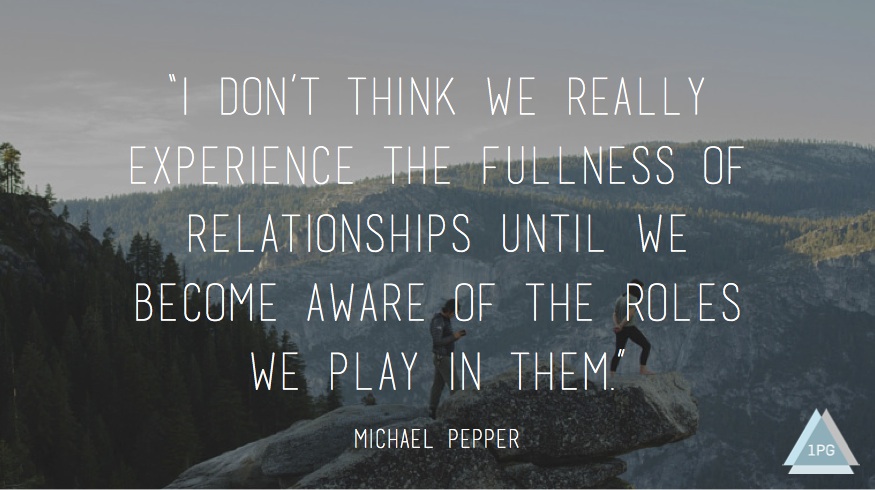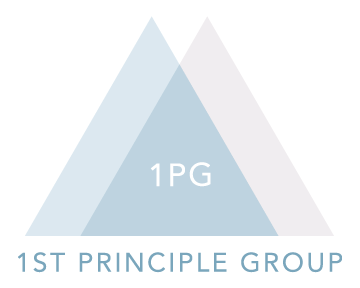What is My Role?
 "The meeting of two personalities is like the contact of two
chemical substances: if there is any reaction, both are transformed."
-Carl Jung
"The meeting of two personalities is like the contact of two
chemical substances: if there is any reaction, both are transformed."
-Carl Jung
I taught a group this week on the various roles we play in our families. We primarily discussed these roles in a dysfunctional family and how they serve to protect the family “secret” that all families work hard to protect (“secret” here meaning something the family either unstated or stated avoids dealing with...not necessarily the secret that aunt Sally stole a bunch of money way back when…it’s the hard dynamics that exist that nobody wants to face). What is interesting about these roles is how we all shift into them in order to deny the existence of, or refuse to deal with the problems inherent in relationships. Sometimes we play the roles willingly and consciously - knowing that if we continue with the charade, we’ll keep the family at peace and we’ll receive some benefit from our behavior. Other times we play these roles without a lot of awareness - responding to the environment and things that were taught to us without forethought.
I don’t want to get lost in a lot of the psychology speak, so just focus on this: we play roles in our relationships because they have served us well and keep us from facing various “secrets” that would otherwise be uncomfortable, difficult, and push us to change. And this not only happens in our families, it happens in every relationship.
Consider the dynamics of your family. Were there moments when instead of mom and dad dealing with their conflict they focused on the children? How did you and your siblings respond?
Your role in this family could look like any of the following:
-”The Hero”: keeping everyone else’s problems front and center because you like having something to focus on, help with, and if you’re honest, you don’t mind being needed… -”The Scapegoat”: getting attention by acting out the frustration of the “secret” - the family can continue to not deal with problems because the attention is spent on “fixing” you (and at least it is some attention!)... -”The Mascot”: easing the tension with humor, taking the focus off of the serious/weighty things by diverting it to happier things - taking responsibility on to alleviate everyone’s pain... -”The Lost One”: distancing yourself from everyone so you don’t have to face what happens when you get close. (“I don’t have to face the problem if I’m not connected to anyone”)
And what happens when we learn those roles early in life? It becomes our standard way of relating to others. We will act out these roles with our friends, significant others, children, etc.
I don’t think we really experience the fullness of relationships until we become aware of the roles we play in them. If I am constantly pleasing others because it not only makes me feel needed, but it allows others to experience me as someone who will “get stuff done” for them - are we really experiencing each other authentically? Or are we just playing the roles that make the relationship “work?”
What would happen if we flipped this dynamic and had an honest conversation about it? What if we recognized the “secrets” we don’t want to face in our relationships and began looking at our thoughts and actions that contribute to it staying secret?
I watch people deal with this every day. And yet, I return home, move into my own roles with my wife...family...friends...and don’t stop to think twice about how I’m contributing to the process. Because the truth is, it’s easier for me to help other people face their “secrets” than it is for me to face my own. It’s extremely uncomfortable to talk about the dynamics of wanting to be close to someone but also fearing that they will leave you. It’s not fun thinking about how much I put my value and worth in someone else’s response to me and whether or not they like me. It’s horrifying to think about telling people that I’m really selfish and don’t care about them - I’m just using them to get what I want.
So I stay silent.
And in this silence, I help the other people in relationship with me to fulfill their roles as well. It’s this unmentioned agreement that we’ll keep playing this game as long as the other will. That’s the crazy thing about relationships: they can happen without any work. We can do some of the preliminary work on the front end to make sure we are on the same page...but after that, it really is not that difficult to stay in “relationship” with someone else. Keep playing your role, I’ll keep playing mine, and we’ll both get something out of it.
Without recognizing the role we play in our relationships, we cannot truly expect to move forward in any meaningful way. Any movement without awareness is either going to cause significant (and confusing) turmoil - “What are you doing? Why did you respond that way?” Or it will cause us to feel isolated, like it’s not worth the work. But once we identify the roles we play, we can begin challenging the ways it leads to stagnation in our relationships. We can shed the pieces of our dependency and fear that we carry around each day. And we can begin to have honest conversations with the other about the roles they play for us.
What unhealthy roles do you play in your relationships? How can you challenge these roles this week?
